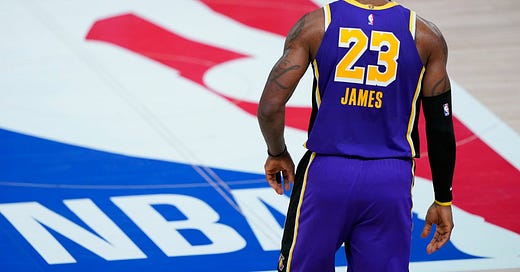NBA: Do The Players Deserve Equity?
NBA owners have seen the valuation of their franchises surge in recent years, but are superstar players like LeBron James, Kevin Durant, and Stephen Curry missing out on the upside?
Every morning I write an email discussing the business and money behind sports. If you would like to receive it directly in your inbox, subscribe now.
Friends,
Here’s a wild stat:
When Lebron James re-signed with the Cleveland Cavaliers in 2014, following a four-year stint with the Miami Heat, the Cavaliers saw their franchise valuation almost double immed…


